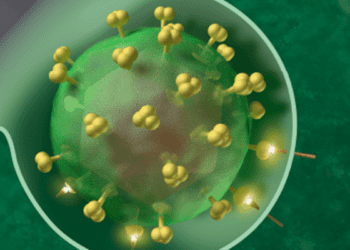Sarilumab increases remission rate in patients with polymyalgia rheumatica relapse
1. In this randomized controlled trial, patients with polymyalgia rheumatica (PMR) flares who received sarilumab with a prednisone taper demonstrated increased sustained remission rates compared to those who received a placebo plus prednisone taper.
2. Sarilumab use led to increased rates of adverse events leading to treatment discontinuation compared to placebo, including neutropenia, arthralgias, and diarrhea.
Evidence Rating Level: 1 (Excellent)
Study Rundown: PMR is an autoimmune condition that causes significant joint pain and discomfort. Glucocorticoid therapy is often used in this population. Yet, some patients have persistent active disease. This has led to studies investigating the efficacy of interleukin-6 (IL-6) antagonists in reducing disease activity. Tocilizumab is one such agent which demonstrated potential clinical utility. This phase III study explored the role of another IL-6 antagonist, sarilumab, in the treatment of PMR. It demonstrated that patients who received biweekly injections of sarilumab for 52 weeks plus a 14-week prednisone taper exhibited significantly increased rates of sustained disease remission compared to those who received a placebo plus a 52-week prednisone taper, as well as significantly decreased cumulative glucocorticoid dose. Sarilumab was associated with increased rates of adverse events including neutropenia and diarrhea compared to placebo. This trial was terminated prematurely due to the coronavirus-19 pandemic leading to decreased sample size, limiting the statistical significance of the study and safety database of sarilumab.
Click to read the study in NEJM
In-Depth [randomized controlled trial]: The Sarilumab in Patients with Polymyalgia Rheumatica (SAPHYR) trial is a phase III randomized controlled trial comparing the efficacy of sarilumab in inducing PMR remission as compared to a placebo. Patients who had at least one episode of disease flare during their glucocorticoid taper (daily dose 7.5 mg or greater) without any other inflammatory arthropathies were included. These patients were randomly assigned in a 1:1 ratio to either receive biweekly subcutaneous injections of sarilumab (200 mg) plus a 14-week prednisone taper (60 total patients) versus placebo plus a 52-week prednisone taper (58 total patients), with an initial daily prednisone dose of 15 mg. The primary outcome was sustained remission at 52 weeks, defined by the resolution of signs and symptoms of PMR and normalization of C-reactive protein levels by week 12, as well as adherence to the prednisone taper from weeks 12-52. At week 52, 28% of the patients in the sarilumab group were found to be in sustained remission versus 10% of those in the placebo group, suggesting an 18% increase in remission rates (95% Confidence Interval, 4 to 32%; p=0.02). The median cumulative glucocorticoid dose was also found to be lower in the sarilumab group versus the placebo group (777 mg vs. 2044 mg; p<0.001). Moreover, despite utilizing a faster prednisone taper than that recommended by guidelines, the patients in the sarilumab group exhibited a decreased incidence of disease flare following remission and a decreased need for rescue glucocorticoid therapy. In summary, this trial demonstrated that sarilumab increases disease remission rates in patients with PMR.
Image: PD
©2023 2 Minute Medicine, Inc. All rights reserved. No works may be reproduced without expressed written consent from 2 Minute Medicine, Inc. Inquire about licensing here. No article should be construed as medical advice and is not intended as such by the authors or by 2 Minute Medicine, Inc.







